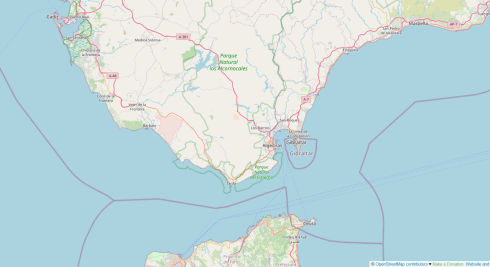You could go to a European country in past centuries and see groups of people playing games around a table, these European pastimes have been some of the main driving forces in making modern games so popular, and a few countries in particular are known for their love of table games, both now and throughout the last few centuries.

It is crazy to think that table games were being played as early as the 1400s in Europe, even if they looked a little different back then, and baccarat is one example of a game that can be traced to European origins, first being played in Italy. Italy was also the home of some of the first lotto games which then spawned a few other gambling variations, and it is the French who take credit for inventing blackjack, a game we often think of as American.
A Changing World of Table Games
The popularity of table games throughout Europe is now easier to track through online play, and the games that would once have been played with a group of friends around a physical table have been smartly adapted for online play. The transformation started along with online casinos first becoming popular in the 1990s and early 2000s, but as you’ll know if you remember dial-up internet, the World Wide Web has come a long way since then.
Lovers of baccarat, poker, and other table games can now benefit from a level of convenience that was unimaginable 20 or 30 years ago, effectively carrying around a whole casino in their pockets ready to play at any time.
Crypto has now taken its rightful place in the casino industry, with so many people enjoying the extra benefits of using crypto to gamble and move their money around. It is usually a lot quicker and carries fewer fees than Euros or traditional currencies, and there is the same massive choice of crypto table games that we’ve grown used to in recent years. Even those who have the most traditional view of table games and have only ever played in person can quickly and easily get to grips with crypto casinos and the way they operate, though crypto casinos have proven to be most popular with younger generations throughout Europe.
Spain
The Spanish have played a key role in the history of table games as well as board games, and the population has had a love of gaming for many centuries, proven by the key role they played in some of the early board games spreading around Europe.
The Spanish helped an early game called “The Game of the Goose” spread all around Europe when Duke Francesco de Medici gave the game to Philip II who helped popularize it. This funny little game was played on a board with images of British monarchs with the simple role of getting to the center, relying on pure luck to get there, a bit like Snakes and Ladders where strategy won’t help you.
Table games and gambling games have proven to be popular with younger generations of adults in Spain, with more than half of the players who play casino games like blackjack and baccarat being under 35, which means it is very likely that the casino industry will continue to thrive in the future.
Spanish and Gibraltarian authorities have put some further focus on finding a way to help the industry stay responsible and promote responsible gambling in the region, with universities and think tanks being involved in guiding the industry.
UK
British people tend to enjoy gambling and have the influence of both American culture and European culture driving their enjoyment of table games, with some huge casinos to visit online or in person operating in the country. London, in particular, has a long history of illustrious casino destinations, and in 2005, the UK Gambling Act was introduced as a way to keep up with a changing online scene for bettors and regulate the industry.
Italy
There is no way we could leave Italy off this list, as the country is supposedly the origin of many table games as we know them, including baccarat which can be dated back to the 1400s by historians, meaning Italians have enjoyed table games for a very long time.
In the modern age, Italy has a more complex gambling scene than some other countries due to the fact that some games aren’t allowed, Italian law makes an important distinction between games of skill and games of luck, with skill games like poker being allowed though strictly regulated.
Conclusion
There are 44 different countries in Europe and that means a lot of different cultures, many of which have embraced table games and online gambling, we have only included some examples in this list of European hotspots, but the truth is that much of the continent has some history of table games from poker to blackjack and beyond.










